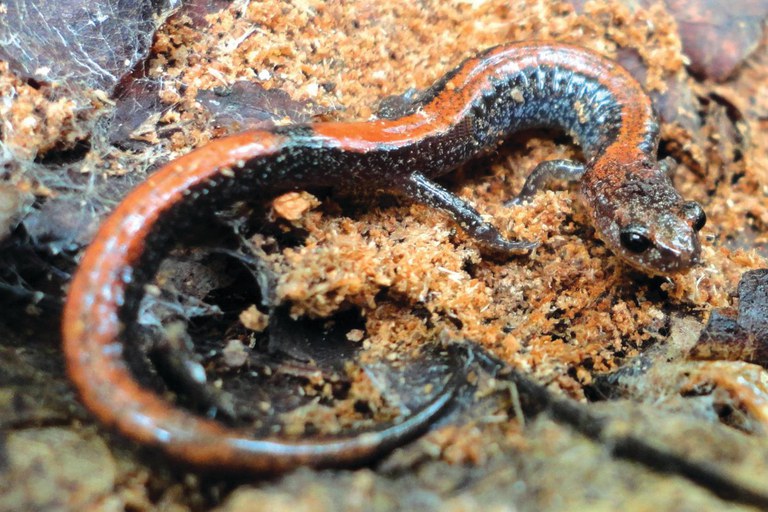Posted: December 2, 2022
Red-backed salamanders may shift northward in response to climate change.
In a new study led by scientists in the college, researchers devised a method to measure the metabolic rate of red-backed salamanders from different regions exposed to warmer temperatures--analyzing how much more energy the small, hardy woodland amphibians would expend to survive in the forests they now inhabit from Quebec south to North Carolina, and west to Missouri and Minnesota.
They determined that if average temperatures rise as projected in eastern North America in coming decades, the salamander likely will be unable to adjust, and its range may shift northward. In findings published in Ecology and Evolution, the researchers reported that no populations showed adjusted metabolic rate responses sufficient to deal with projected future climate temperatures .
--Jeff Mulhollem
Features
Fostering Forests
Across the United States, forests face unprecedented threats, and scientists in Penn State's College of Agricultural Sciences are conducting novel and complex research to conserve them.
Buzzing With Purpose
Community scientists work to protect Pennsylvania's wild bees
Conservation Reimagined
Exploring new approaches to cope with a changing climate



